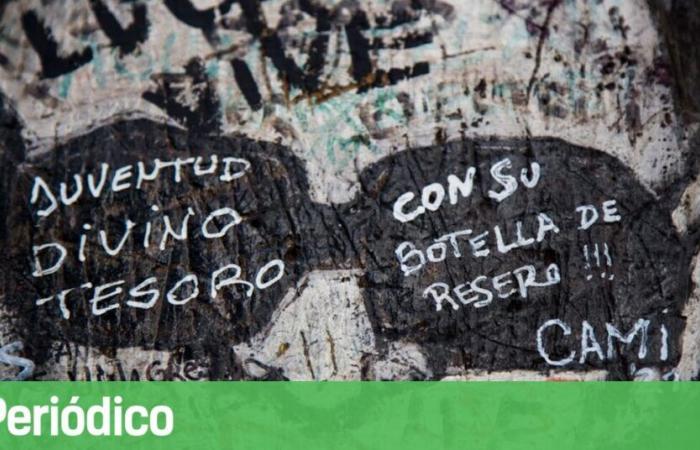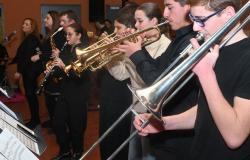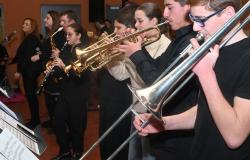On December 22, 1987, Argentine rock lost one of its greatest icons: Luca Prodan. This Italian artist, born in Rome on May 17, 1953, left an indelible mark as a leader of Sumoa band that broke ground with its innovative fusion of punk, reggae and post-punk.
His figure, charisma and legacy remain alive in the collective memory of national rock, transforming him into a symbol of authenticity and rebellion.
Luca Prodan arrived in Argentina in the early 1980s, after having survived a heroin overdose in London. In search of a radical change in his life, he accepted the invitation of his friend Timmy McKern to move to a ranch in Traslasierra, Córdoba.
It was there that he began to envision the project that would later give life to Sumo. “I didn't come to Argentina to escape, I came because it was a place I didn't know, where I could start over,” he confessed in one of his most memorable interviews.
Sumo was officially born in Hurlingham, in Greater Buenos Aires, and quickly became a cult band in the 80s. With Prodan at the helm, the group introduced sounds that were absent in the local scene, marked by traditional national rock. “Argentina is a beautiful country, but its Music needs some shaking. I came to give them that,” he said with his characteristic irony.
Sumo: A sound revolution
The group debuted in small bars and clubs undergroundwhere their mix of reggae, punk and post-punk made an immediate impact. Discs like Divided by happiness (1985), The monkeys arriving (1986) y After Chabon (1987) marked a great influence on national music. Songs like “La blonde tarada”, “Better not to talk about certain things” and “The old vinegars” not only became classics, but also anthems of a generation that was beginning to experience the recovery of democracy in the country.
Prodan stood out for his intensity on stage and his ability to connect with the audience. “When I sing, I forget everything. There is nothing but the music and the people,” he said.. His magnetic presence and husky voice, along with his fluent English, gave Sumo a unique style. that still resonates in the hearts of fans today.
Sumo
The man behind the myth
Although he was a charismatic and passionate figure, Luca also carried strong internal pain. His relationship with alcohol was notorious, something that he himself crudely recognized. His personal struggles never obscured his creative genius, although eventually, his body could not handle the excesses.
Prodan died at the age of 34 in his home in San Telmo, leaving a huge void in Argentine rock. His premature departure not only meant the end of Sumo, but also the beginning of a legend. His influence extended to the bands that emerged from his former bandmates, such as Divididos and Las Pelotas, who carried forward the legacy of his music.
Saint Elmo's house
Years after his death, the house he lived in in San Telmo (Alsina 451, very close to the Plaza de Mayo) was transformed into a cultural space dedicated to preserving his legacy. In this place, now known as At Casa de Lucaartistic activities, exhibitions and tributes to national rock are carried out. Fans from all over the country come to learn more about the story of the musician, who made this house a refuge during his last years.
The place also houses personal objects, photographs and documents that tell of his life and work. This space has become a place of pilgrimage for those who wish to connect with the irreverent and passionate spirit of Luca.
An eternal legacy
37 years after his death, Luca Prodan remains an undisputed icon in Argentine rock. His music continues to inspire new generations, and his figure has become a symbol of artistic freedom and authenticity. “Luca was not just a musician, he was a cultural phenomenon. “It awakened something in us that will never go out,” he said. German DaffunchioSumo guitarist, in a recent interview.
Ricardo Molloalso a former bandmate and current leader of Divididos, remembered Luca emotionally: “He was a guy who pushed you to give everything. He had a vision of music and life that marked you forever. Every time we go on stage, there is something of Luca that is present.”
“Luca was pure fire, pure truth. “He never tried to be something he wasn't, and that's what made him so special,” Mollo highlighted.
Each anniversary of his death is an opportunity to rediscover his work and reflect on the impact he had on Argentine music and culture. In Luca's own words: “Music has no borders, no rules, no limits. You just have to live it.”
Prodan remains alive in every chord, in every song, and in every heart that finds in his music a refuge of rebellion and emotion.






